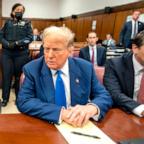Kurds Appeal to Bush to Restrain Turkey
S U L A I M A N I A H, Iraq, Feb. 25 -- Heads of the two Kurdish factions allied with the United States in the looming attack on Iraq have made an unprecedented appeal to President Bush to protect them from another potential antagonist: NATO ally Turkey.
The administration has received entreaties about the need for protection from Turkey in the past, but this is the first in writing and the Kurds have labeled it "urgent."
The Turkish government has announced plans to enter northern Iraq to carve out a "security belt" for the protection of war refugees. The appeal to the White House came 10 days ago in the form of a letter, a copy of which has been reviewed by ABCNEWS.
The letter says many Kurds fear that "Turkey's real agenda" in wanting to send troops into Kurdistan, an autonomous area in northern Iraq, "is to crush [our] experiment in democratic self-government."
The letter contains a blunt warning as the United States prepares to use Turkey a base to launch attacks on the Baghdad government: "Should Turkish military forces come in contact with Kurdish populations," the letter declares, "there is a real risk of clashes."
Describing the Kurds as "a loyal partner" of the United States, Massoud Barzani of the Kurdistan Democratic Party and Jalal Talabani of the Patriotic Union of Kurdistan request a formal "memorandum of understanding" that would guarantee "non-intervention by all Iraq's neighbor[s]" and commit the United States in writing to Kurdish concerns for "a federal and democratic Iraq."
Outnumbered by Turkey
Turkey's threatened incursion could complicate U.S. war efforts and might trigger a wider regional involvement in northern Iraq. ABCNEWS has learned that Iran sent a delegation to Kurdistan earlier this month, probing potential interest in Iranian military assistance if Turkey makes good its threat to intervene in the area.
The Kurds, whose population in the countries of Iraq, Turkey, Iran and Syria is estimated at 30 million, have no state of their own. Iraqi Kurds, landlocked with no airport facilities, have had a history of shifting alliances with neighboring countries.




